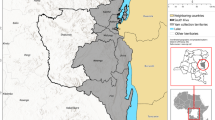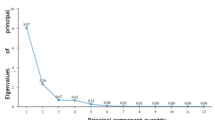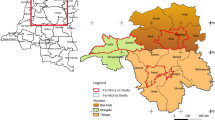Abstract
YAM (Dioscorea rotundata) is widely consumed in Ghana and other parts of West Africa and in some regions forms a staple of the diet. Toxic principles have been isolated from some species of yam, and it is widely known among farmers that the consumption of particular forms of yam may prove fatal1. Other species of yam when eaten in large quantities are said to lead to stupefaction2. It seemed desirable, therefore, to examine more closely the nutritional properties of those species of yam consumed commonly in Ghana.
This is a preview of subscription content, access via your institution
Access options
Subscribe to this journal
Receive 51 print issues and online access
$199.00 per year
only $3.90 per issue
Buy this article
- Purchase on SpringerLink
- Instant access to the full article PDF.
USD 39.95
Prices may be subject to local taxes which are calculated during checkout
Similar content being viewed by others
References
Irvine, F. (personal communication).
Burkill, I. H., A Dictionary of Economic Products of the Malay Peninsula (Pub. Crown Agents for the Colonies, London, 1935).
Gillman, J., Gilbert, C., Gillman, T., and Spence, I., Amer. J. Dig. Dis., 19, 201 (1952).
Author information
Authors and Affiliations
Rights and permissions
About this article
Cite this article
GILBERT, C., GILLMAN, J. Yams and Liver Necrosis. Nature 198, 196 (1963). https://doi.org/10.1038/198196a0
Issue date:
DOI: https://doi.org/10.1038/198196a0



